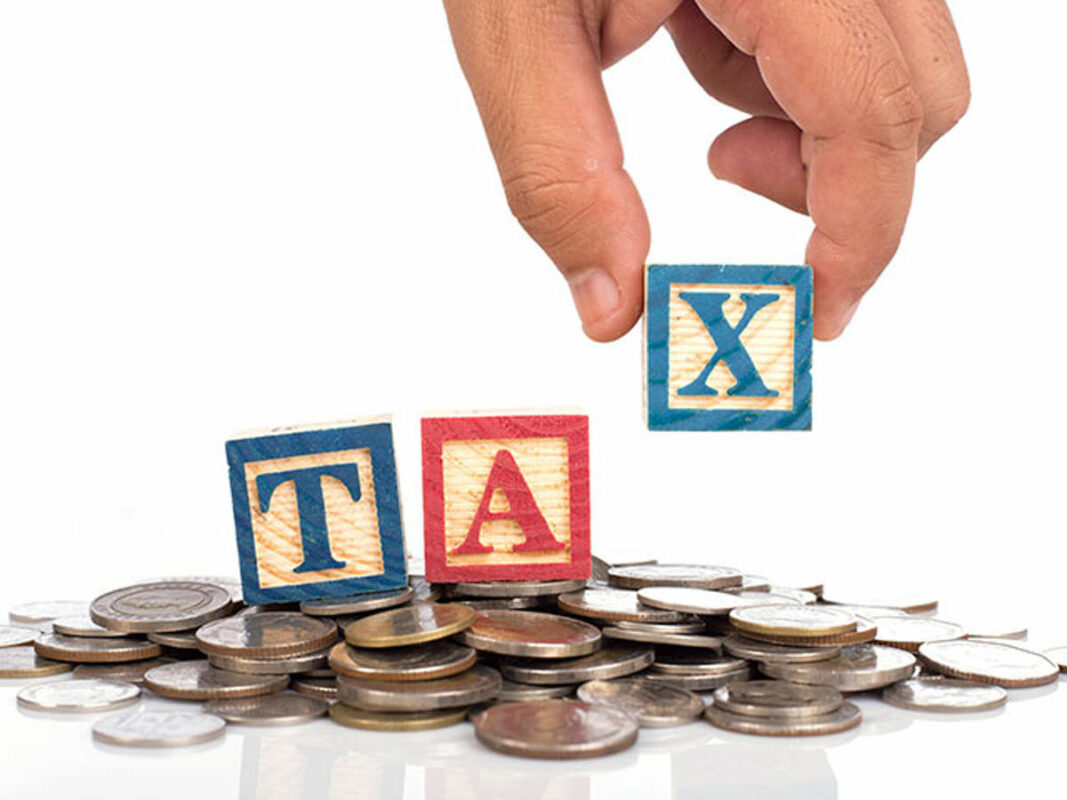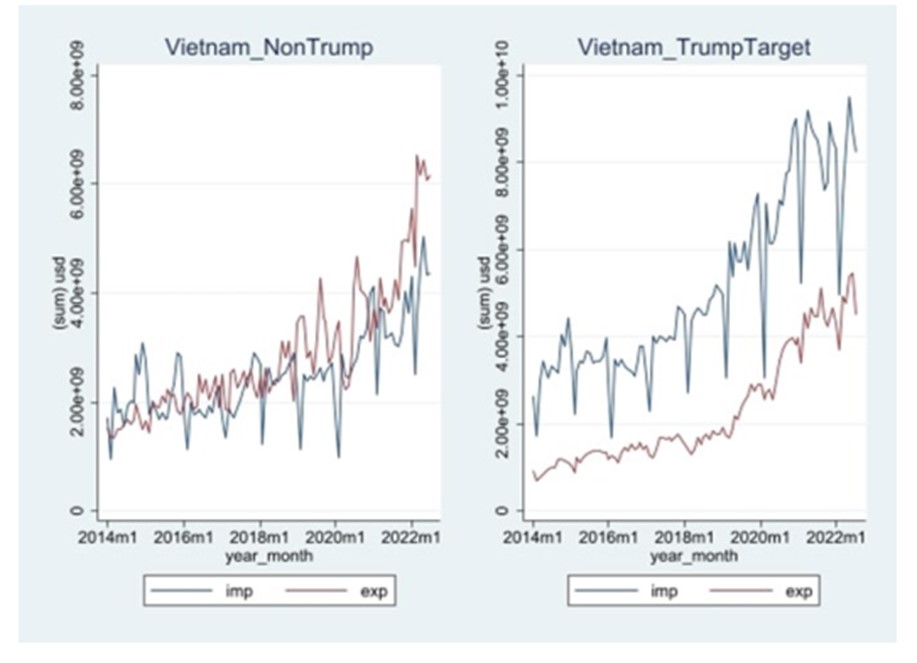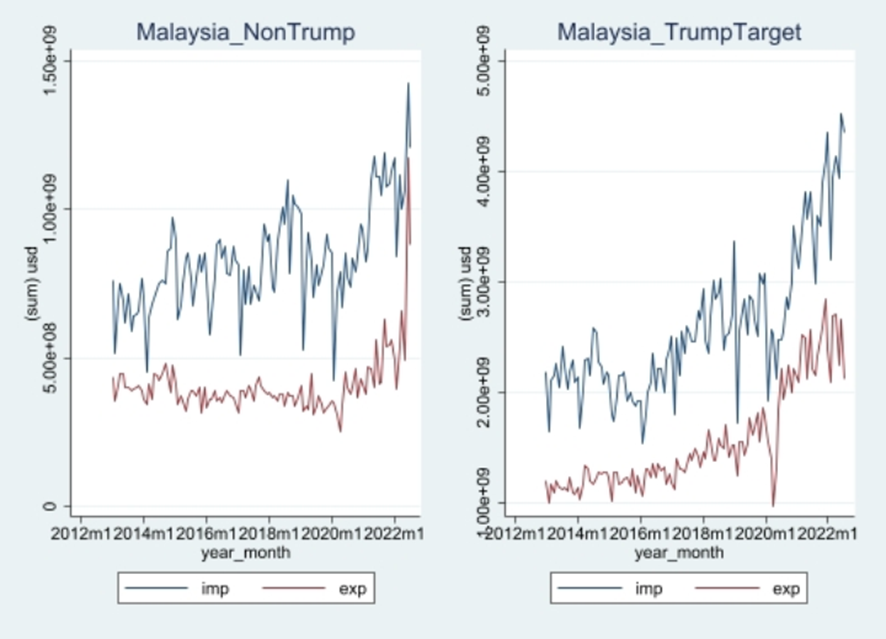Tổng số bài đăng 465.
With Donald Trump winning and returning to the White House from 2025, some ASEAN countries such as Vietnam and Malaysia will need to be careful about falling into the situation of being considered a gateway for Chinese goods to enter the US, leading to are subject to high taxes. Evidence and research need to be collected to prove that America's fears about tax evasion and origin fraud on Chinese goods may be greater than reality.

A recent study by the Economic Research Institute for ASEAN and East Asia (ERIA), conducted by author Tadashi Ito in November 2024, revealed findings indicating that there appears to be limited scientific evidence of Chinese goods being diverted through third countries to evade high import tariffs into the U.S. market.
During the previous Trump administration, high tariffs were imposed on a range of Chinese products. These tariffs, which targeted more than 60% of Chinese goods at the 8-digit Harmonized System (HS) level, aimed to address issues related to intellectual property rights and unfair trade practices. The tariffs led to a significant decline in direct exports from China to the U.S., sparking speculation that Chinese goods may have been redirected through third countries to avoid tariffs when entering the U.S. market.
Ito’s study investigated and analyzed in-depth the phenomenon of Chinese-made goods being routed through third countries before being exported to the U.S. to evade the high tariffs imposed by the U.S. on Chinese products. Although this phenomenon has been widely discussed in the media, there has been little scientific evidence or reliable proof so far. The study used detailed monthly trade data from key trade partners of both the U.S. and China, analyzing trade patterns up until 2023, with the aim of identifying any abnormal increase in imports from China and simultaneous increases in exports to the U.S. for goods targeted by the Trump administration’s tariffs.
The findings suggest that initial observations do not show clear signs of Chinese goods being routed through third countries such as Canada, Vietnam, or Malaysia to avoid tariffs when entering the U.S. market. Advanced statistical models were used to identify any significant relationship between imports from China and exports to the U.S., with the results mainly showing no significant relationship, indicating that tariff evasion through rerouting goods via third countries before reaching the U.S. is not a widespread strategy. However, the expanded data up to 2023 did show some small signs of this phenomenon in Mexico and Vietnam, but these signs were not large enough to suggest a significant trend.
For example, in Vietnam, although the value of imports from China and the value of exports to the U.S. both showed relatively similar increases, this pattern occurred for both goods that Trump targeted for tariff evasion and other goods not subject to tariff evasion.

Viet Nam’s Imports from China and Exports to the US of Non-Trumptargeted Goods and Trump-targeted Goods
For Malaysia, while it is true that the commodity group targeted by Trump appears to have shown a pattern of increased both imports from China and exports to the US compared to commodity groups not targeted by Trump, the overall conclusion is Tax evasion here is also unclear.

Malaysia’s Imports from China and Exports to the US of Non-Trumptargeted Goods and Trump-targeted Goods
Overall, according to the research findings, it can be concluded that tariff evasion through rerouting goods produced in China via third countries is not widespread and does not form a major trend, although this phenomenon could occur in specific cases.









